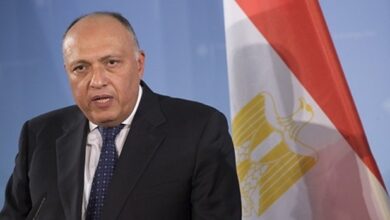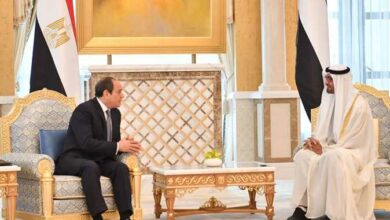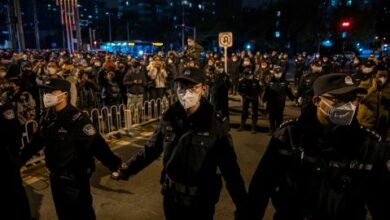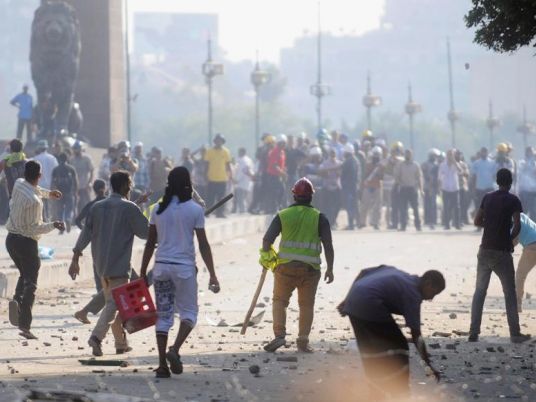Sanaa — Yemen's opposition said it would send a delegation to Saudi Arabia on Sunday to discuss with Gulf Arab ministers the transition of power in Yemen, as thousands rallied anew to demand President Ali Abdullah Saleh step down.
Opposition leaders previously refused to join Gulf-mediated talks with Saleh's representatives, saying they wanted to force him out within two weeks and the Gulf plan did not include a quick or clear timetable for the transition of power.
"We have requested this meeting with the GCC states' foreign ministers to explain our points of view on the Gulf initiative," opposition leader Yassin Noman told Reuters, adding former foreign minister Mohammed Basindwa would head the delegation.
Saleh, who has warned of civil war and the break-up of Yemen if he is forced out before organizing an orderly transition, has urged opponents to reconsider their refusal to join talks. He has said he wants to hand power to what he calls "safe hands."
But he also struck a defiant tone, calling the opposition liars and bandits, and appealing to religious sensitivities in the conservative Muslim country by criticizing the mixing of unrelated men and women among Sanaa protesters.
The remarks enraged many Yemeni women, who took to the streets in their thousands in Sanaa and other cities on Saturday to protest against his comments, saying women's participation in protests was religiously sound.
Violence also erupted in several parts of the country. A local official said gunmen tried to storm a police station in the southern port city of Aden, and a soldier was shot dead in the southern province of Abyan, medical sources said.
STICKING POINT
The Gulf plan announced a week ago appeared to promise Saleh immunity from prosecution, an issue that had proved a stumbling block in earlier talks that stalled. Saleh accepted the Gulf talks framework the next day.
Noman said the opposition was concerned the existing Gulf initiative, while it suggested Saleh transfer powers to a deputy, did not mention him actually quitting his post — a key sticking point for his opponents.
More than 116 protesters have been killed in clashes with security forces since late January, and there are fears the violence could escalate in the country, half of whose 23 million people own a gun.
Around 5000 women, many clad in black Islamic dress and full face veils, demonstrated against Saleh in Sanaa on Saturday, with similar numbers in the industrial city of Taiz, south of the capital.
"It seems that President Saleh failed in all his efforts to employ tribes and security to strike at those seeking his exit, and so he resorted to using religion, especially after he saw that thousands of women were taking part in protests," said Samia al-Aghbari, a leader in the protest movement.
Some women brought their young daughters to the protests, including one with her face painted with the image of the Yemeni flag encircled by a heart on her cheek and the word "Leave" scrawled on her forehead.
"If Saleh read the Koran he wouldn't have made this accusation," said one protester, who gave her name only as Majda. "We ask he be tried according to Islamic law."
But the issue of mixed protests remained a sensitive point for an anti-Saleh movement that has had the support of the main opposition coalition, which includes leftists but whose largest member is the Islamist party, Islah.
OUTBURSTS
While the early all-female protests ended without incident, forces loyal to defected army General Ali Mohsen, who is protecting the protesters, fired in the air to disperse a rally by men and women in the afternoon, a female activist said.
Saudi and Western allies of Yemen fear a prolonged standoff could ignite clashes between rival military units and cause chaos that would benefit an active Al-Qaeda wing operating in the poor, mountainous Arabian Peninsula country.
On Saturday, gunmen in Aden tried to storm a police station and then battled with security forces for half an hour before being driven back by rooftop sniper fire, a local official said.
Officials said protesters in Aden tried to shut down traffic in the city in support of a strike call, but security patrols were removing makeshift roadblocks. Most shops were closed.
In the southern province of Abyan, where both al Qaeda militants and southern separatists are active, a gunman on a motorcycle shot dead a soldier as he walked in the street, medical sources said. A local official blamed Al-Qaeda.
In Amran province north of Sanaa, gunmen attacked a prison late on Friday, killing three guards and freeing 20 death row inmates, a local official said.
He said authorities managed to recapture all but one prisoner — an Islamist convicted of shooting dead a member of the country's tiny Jewish community in 2008.
Saleh, who has already lost control of several provinces, was struggling to quell a separatist rebellion in the south and cement a truce with Shia Muslim rebels in the north even before the start of the protests, inspired by the toppling of the Tunisian and Egyptian presidents.




